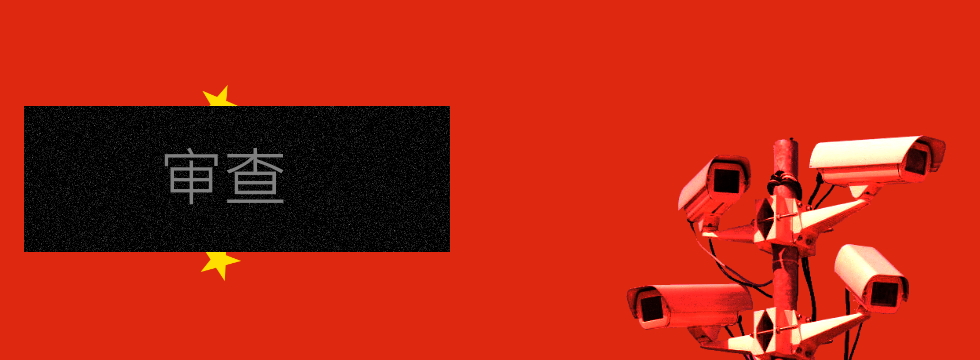Movies. How China decides what we watch and play

- The Chinese Influence on Video Games and Pop Culture
- Blizzard and gas masks
- The crux – influence
- Sports
- Movies
Movies
Let me introduce you to a completely hypothetical situation: a movie about basketball - one of the most popular sports in China, is in the making. As we have already defined, China is a gold mine. The producers make a decision – the distribution of the movie will include the People's Republic of China. The PRC, as we can imagine, expects that the movie will meet specific standards which are in line with the Party's regulations. Needless to say, these standards aren’t necessarily compliant with Western standards. The final outcome, which may (or may not) be released in Chinese movie theaters will most probably get constrained and adjusted in accordance to all guidelines of the totalitarian state. In the best case, an alternative, second version of the film will be produced specifically for the Chinese market.
THE MYTHICAL WINNIE THE POOH
Christopher Robin is a great example of a movie banned by Chinese authorities – the reasons for it, ludicrous. This incident reveals the huge impact of China on the finances of Western producers. The movie was released in 2018. As the name suggests, the plot is about Christopher, but actually it depicts the story of Winnie The Pooh. It was banned in the PRC because it became a tool used to mock the General Secretary, Xi Jinping. All producers have one thing in common: they want to make a lot of money out of every movie. So if any theme or topic seems to hinder their money flow, they simply abandon the idea. What do you think – when we will see another Disney movie with Winnie the Pooh?

Why does it matter? First of all – the global reality. The real extent of our influence (at least potentially) has increased sharply. Also, we are now aware of events taking place in all parts of the world. Our individual reality is no longer restricted to our neighborhood or the city where we live in. It extends to other countries and continents. We all know that human rights are violated in China, and one of the tools of oppression is the censorship. So, if we read on Facebook that producers and developers located in the US or Europe make profits by actively supporting censorship in China, why, then, are we still buying their games and movies? That's the point – we feel helpless. Or we don't care about all the fuss. There are some scientific papers and empirical research which indicate that our empathy decreases with increasing distance – if a certain problem occurs far away (in a distant country), we are less likely to oppose it or provide any help. China is far away, so all we can do is to submit a furious post on social media. And indeed, nothing changes.
Then, there’s moral duty. I know. These are some serious, difficult issues. But supporting a regime or making use of its wealth is not morally ambiguous. It's immoral. The chain of events will implicate us sooner or later. Participation in unethical action is not advisable if you care about your clear conscience. Making millions of dollars, and covertly supporting the regime is also rather dodgy.
Cut to the chase: without a clear and explicit message of opposition from non-Chinese consumers, the PRC will be deciding what we're going to watch and play. Literally. Some movies just won't be made. Some of them will get heavily edited, appearing in a very different form than initially planned.
Think Kristen Stewart, for example. Maybe we had a chance to see her in Marvel Cinematic Universe, but we won't – because, despite the suggestions, she still insists on holding her girlfriend's hand in public. And no, you will not read anywhere that it was China that frowned upon the act. In liberal Hollywood, nobody would care. Diversity is welcome – unless there's a lot of money at stake. It could seem that the Star Wars is a monolith of the science fiction genre, larger than anything else. Well, not in China. The character of Finn, performed by John Boyega (who happens to be a Black Briton), was significantly scaled down on the Chinese version of The Force Awakens promo poster – even though he was one of the main characters.
Politics and games
For a long time now, video games have been considered art. Designers and developers – artists. Art responds to changes in the world – including politics. Visit any museum of modern art and it will become obvious. They’re full of pieces that emanate passion and commitment. Art is rarely detached.
And do you know who doesn’t care about games’ status as art? Corporations. Big money. China. “Let it be art,” says a man smoking a cigar. “As long as it makes the buck.” And this is how things look in many other areas – feminism, minorities, diversity, tolerance, and finally, plain decency. It's also similar with freedom – freedom of speech, religion, and of individuals. Everything can be designed or developed if it won't cause any financial losses. In this context, let's return to the case of Blizzard and the NBA – imagine how much revenue they get from China if they can tarnish their reputation in such a bad manner.
Of course, it's easy to blame China or Tencent – sure, they’re directly responsible. But the list is longer, and right below the Middle Country, we have money, market and profits. If things keep going in this direction, our culture won’t be destroyed by foreign agents oblivious to it. It will be destroyed by us, who hold the invisible hand of the market. It's always convenient to deny a thought like that, but we have to remember that our choices matter. Neglect or action. Convenient access to cheap goods, or integrity. Censorship or freedom of speech. Indifference or a clear conscience.
[/idealism]
